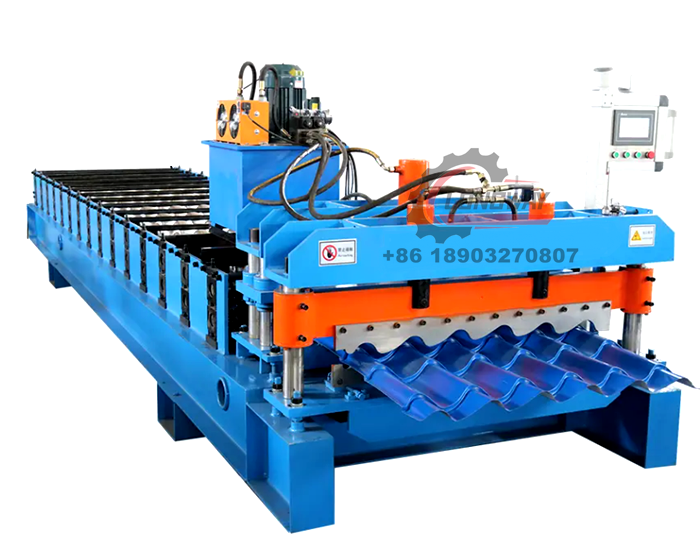Cost Analysis of Roof Sheet Manufacturing Machines from Various Companies
The Cost of Roof Sheet Making Machines A Comprehensive Overview
In the world of construction and manufacturing, roof sheets play a pivotal role in ensuring the durability and strength of structures. As the demand for high-quality roof sheets continues to rise, businesses and individuals looking to enter this lucrative market are increasingly considering investing in roof sheet making machines. Understanding the costs associated with these machines is essential for making informed investment decisions.
Understanding Roof Sheet Making Machines
Roof sheet making machines are specialized equipment designed to produce metal sheets used in roofing applications. These machines can process various materials, including galvanized steel, aluminum, and more. The production process typically involves roll forming, where flat metal sheets are fed into the machine, processed through a series of rollers, and shaped into desired profiles.
Key Factors Influencing the Cost
The cost of roof sheet making machines can vary significantly based on several factors
1. Type of Machine There are different types of roof sheet making machines, including single-profile machines, multi-profile machines, and fully automated lines. The choice of equipment greatly impacts the cost. For instance, fully automated systems, while more expensive, offer efficiency and reduced labor costs in the long run.
2. Production Capacity Machines with higher production capacities typically command higher prices. A higher output means faster production times and the ability to handle larger orders, which can be particularly beneficial for businesses looking to scale operations.
3. Material Compatibility Machines designed to work with a wider variety of materials or thicker gauges often come at a premium. If a company plans to diversify its product offerings, investing in versatile machinery could be a wise choice.
4. Technology and Features Modern machines often come equipped with advanced technology, such as computer numerical control (CNC), which allows for greater precision and flexibility in production. The integration of smart technologies for monitoring and adjustments can drive up initial costs but can save money in operational efficiency.
5. Manufacturer Reputation The brand and reputation of the manufacturer can significantly affect the pricing. Established manufacturers with a track record of reliability and quality may charge more for their equipment compared to lesser-known brands. However, investing in a reputable brand often ensures better support, maintenance, and parts availability.
roof sheet making machine cost company

6. Location and Shipping Costs Shipping machinery can be costly, especially if it is imported. Additionally, different regions may have varying levels of demand, influencing prices. Buyers should consider logistics when budgeting for a machine purchase.
Estimated Costs
On average, the cost of roof sheet making machines ranges from $10,000 to $200,000 or more, depending on the aforementioned factors. Basic models suitable for smaller operations can start around $10,000 to $50,000, while more advanced and fully automated systems can go upwards of $100,000.
Additional Costs to Consider
Beyond the initial purchase price of the machine, companies should also factor in additional costs, including
- Installation Professional installation may be necessary to ensure the machine operates correctly and adheres to safety standards. - Maintenance Regular maintenance is crucial for longevity and optimal performance. Organizations should budget for routine service and potential repairs.
- Training Staff may require training to operate the machinery effectively, which could involve additional costs, especially for complex systems.
- Raw Materials The cost of raw materials should also be taken into account, as it directly affects profitability. Securing quality materials at competitive prices is essential for sustainable operations.
Conclusion
Investing in a roof sheet making machine can be a significant financial commitment, but it is also a strategic move for businesses looking to capitalize on the growing demand for roofing materials. By understanding the factors that influence machine costs and considering additional expenses, potential buyers can make informed choices that align with their operational goals and budget. As the construction industry continues to evolve, having access to quality machinery will put businesses in a better position to meet market demands effectively and efficiently.
-
Roof Panel Machines: Buying Guide, Types, and PricingNewsJul.04, 2025
-
Purlin Machines: Types, Features, and Pricing GuideNewsJul.04, 2025
-
Metal Embossing Machines: Types, Applications, and Buying GuideNewsJul.04, 2025
-
Gutter Machines: Features, Types, and Cost BreakdownNewsJul.04, 2025
-
Cut to Length Line: Overview, Equipment, and Buying GuideNewsJul.04, 2025
-
Auto Stacker: Features, Applications, and Cost BreakdownNewsJul.04, 2025
-
Top Drywall Profile Machine Models for SaleNewsJun.05, 2025








